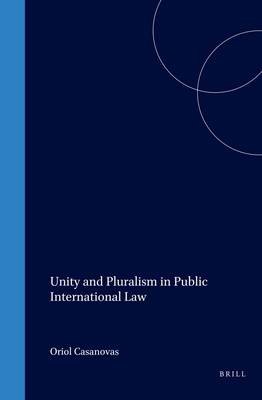
- Afhalen na 1 uur in een winkel met voorraad
- Gratis thuislevering in België vanaf € 30
- Ruim aanbod met 7 miljoen producten
- Afhalen na 1 uur in een winkel met voorraad
- Gratis thuislevering in België vanaf € 30
- Ruim aanbod met 7 miljoen producten
Zoeken
Omschrijving
The proliferation of international courts and the extension of international regulation to new areas have been considered to be threatening for the unity of Public International Law as a legal system. These developments are the consequence of the increasing formation of legal subsystems (material international regimes) which continue to grow in complexity. How these trends affect the unity of the international legal system requires theoretical scrutiny of its fundamental bases. This work considers that the unity of the international legal system depends upon its normative structure, and on the social medium in which it is applied: the evolving international community. A unified international legal system has as its ultimate goal the protection of human dignity through the international regulation of human rights. The question of the unifying stability of the international legal system and the development of legal subsystems within it encourages a review of the major issues of current Public International Law, considering the evolution from traditional doctrines to recent approaches. This review is done from an analytical frame that provides a deeper understanding of the current situation of Public International Law as a legal system.
Specificaties
Betrokkenen
- Auteur(s):
- Uitgeverij:
Inhoud
- Aantal bladzijden:
- 288
- Taal:
- Engels
- Reeks:
- Reeksnummer:
- nr. 39
Eigenschappen
- Productcode (EAN):
- 9789041116642
- Verschijningsdatum:
- 1/07/2001
- Uitvoering:
- Hardcover
- Formaat:
- Genaaid
- Gewicht:
- 589 g

Alleen bij Standaard Boekhandel
+ 540 punten op je klantenkaart van Standaard Boekhandel
Beoordelingen
We publiceren alleen reviews die voldoen aan de voorwaarden voor reviews. Bekijk onze voorwaarden voor reviews.








